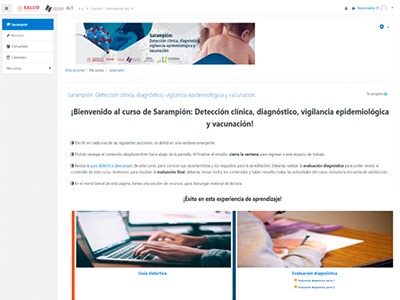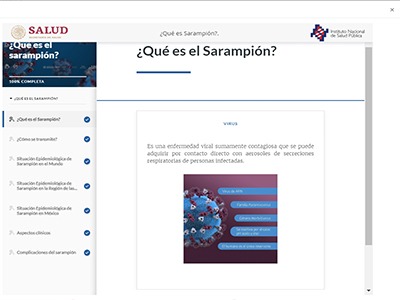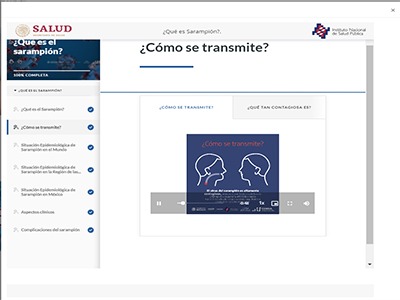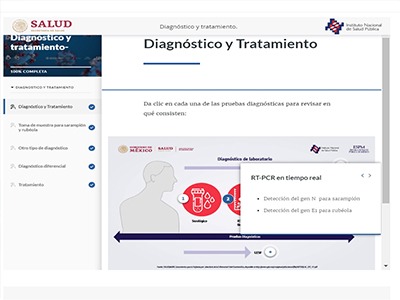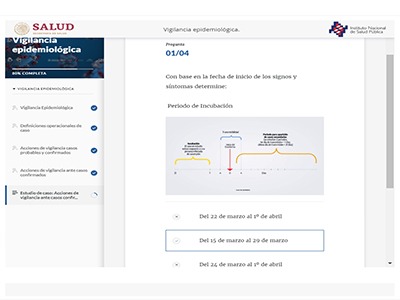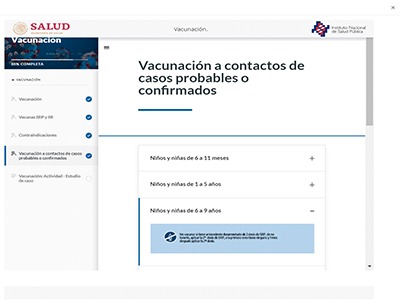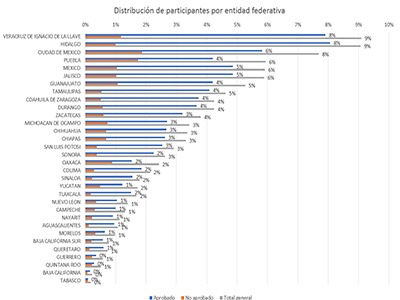INSP México: Successful Participation in Measles Self-Management Course
The National Center for the Health of Children and Adolescents (CENSIA), in collaboration with the Directorate of Epidemiological Surveillance of Communicable Diseases of the Ministry of Health of Mexico, proposed the course “Measles: Clinical detection, diagnosis, epidemiological surveillance and vaccination” is aimed at physicians and first-level care health workers. The course is meant to help them update their clinical knowledge essential for the identification of measles in their patients, to know what to do at physicians’ office and in the health unit when they detect a probable case, when the infection might have occurred and infected other people.
It is a self-managed virtual course. From the moment of online registration, the participant determines the time that will be dedicated to study the contents and activities, which present self-evaluation results for monitoring and self-regulation of their learning process. It was designed by the National Institute of Public Health (INSP) Academic n Secretariat. The recommendation is to have a work rhythm in order to achieve the learning objectives. The estimated study time is 20 hours distributed over 2 to 4 weeks or at least 1 hour daily.
The course opened its registration on July 15, 2020 and closed on September 4, 2020, and will remain open until September 30 so that those who have registered can conclude during the next 3 weeks. The course may be reopened for a new period, as it is controlled for the INSP Multiplatform to manage a new user registry.
Initially, the expectation was to service 5000 participants, however, by July 31, 6,280 participants had registered, of which 3,380 participants had completed the course. As of September 14, 2020, there were 18,697 registered, of which 15,286 participants have passed (82%) and 3,411 are yet to be concluded (18%).
The course content includes infographics and videos presented to expose the epidemiological situation in the world, in the Americas and in Mexico, as well as resources that may be updated as new figures are published. It is important that first-level-care health personnel know about the laboratory tests to make a timely diagnosis and at the same time give clinical follow-up in order to avoid complications and, if they occur, have the referral channel to hospitalization.
Even when case monitoring corresponds to an epidemiologist from the Health Unit or Health Jurisdiction assigned to this task, physicians must collaborate with the study. Through the presentation of cases, the diagnosis and treatment of measles, the operational definitions of cases and epidemiological surveillance actions are addressed. Finally, they have a discussion over vaccination, contraindications and events possibly attributable to vaccination or immunization.
With these actions, INSP confirms its commitment to train and updating health human resources and with its mission to contribute to population health in Mexico.
